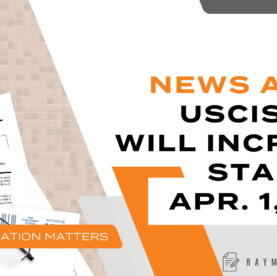The Trump-Russian Lawyer: Undocumented? Issued a Visa? How Did She Get into the United States? Did CBP Really Strip Search Her at the Airport?
Many questions have arisen concerning the immigration status of the Russian lawyer who is at the center of the media’s coverage of the federal Russian 2016 Presidential Election interference investigation. Was she undocumented? Did she have a visa? Was it a visitor visa? Why was she allowed to enter the United States? How did she enter? Clarity has been found in an affidavit the Russian lawyer filed as counsel in United States v. Prevezon Holdings Ltd., et.al, 1:13-cv-06326 (SDNY 2013), Doc. No.: 508. In the case, the Russian lawyer was assisting in the defense of a $230 million federal tax fraud case, which was settled for $6 million.
Russian lawyer Natalia Veselnitskaya wrote that she initially attempted to secure a visa to enter the United States. Veselnitskaya and her children applied several times at the United States Embassy; the State Department denied the applications.
Apparently on a mission to enter the United States, Veselnitskaya then reached out to the Department of Homeland Security (DHS). DHS exercised its authority under federal regulations, ignored the State Department’s decisions, and allowed Veselnitskaya to enter the United States “in order to defend [the] lawsuit.” DHS granted the lawyer “parole,” which is a rarely-given permission to enter the United States for a short time if there are “significant public benefits” or other “extraordinary circumstances.”
Occasionally, a truly significant public issue or extraordinary circumstance arises, warranting DHS’s exercise of its parole power. NM&M’s Immigration Practice Group has handled parole requests for hospitals, individuals, universities, research institutes, medical patients, small businesses, and corporations.
As a side note, Veselnitskaya’s affidavit described the unchecked authority of Customs and Border Protection Agents at airports and other ports-of-entry:
In November of 2015, after having been in the United States in connection with this matter, I traveled to London for two days. Upon returning to Heathrow Airport on my way back to the United States, I was detained for two hours by Heathrow Airport officials who specifically targeted me on the basis of the parole number that the United States Government had assigned to me. During this detention I was unjustifiably subjected to a strip search, for no apparent reason. I should not be subjected to such humiliation when I have been promised entry into the United States to defend against the scandalous accusations in this lawsuit on behalf of my clients.
CBP has substantial discretionary authority at airports, seaports, land entries, and other ports of admission across the United States. It is important to be well-prepared and documented when entering the United States. Entrants must be prepared to properly answer any questions or concerns of the CBP officer. To prevent CBP entry issues, the entrant must be proactive from the start. Accordingly, students, foreign employees, professionals, skilled-laborers, visitors, professors, healthcare professionals, and others must have competent, dedicated, and experienced legal representation in all immigrant and non-immigrant matters or parole requests.
To read Russian lawyer Natalia Veselnitskaya’s affidavit, click here.
If you have questions about this post, your rights, or any other immigration law issues, please contact me at rglahoud@nmmlaw.com.



